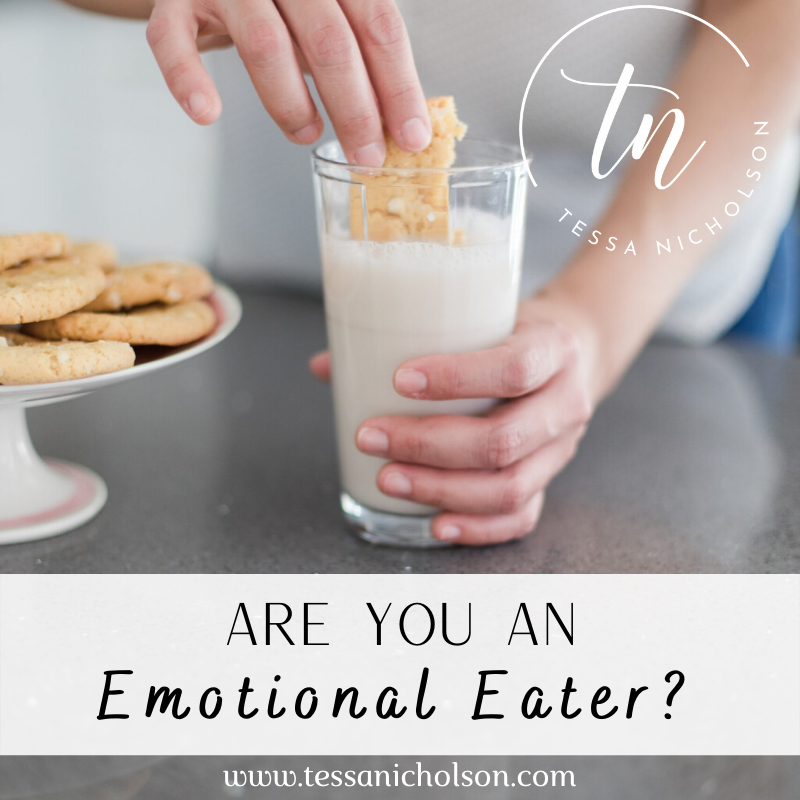You guessed it – there’s another stress hormone!

Stress eating. Yes, it’s a thing.
When you feel stressed, you probably experience one or more of the “fight,” “flight,” or “freeze” reactions. These reactions are related to stress hormones that impact your physical body when your brain feels threatened or challenged. You may have heard of the stress hormones adrenaline and cortisol. But, the more we look into human physiology, the more we learn.
Of course, there are so many symptoms of stress, one of which is the need to start searching around for a quick, convenient snack. That’s a pretty common experience, and now researchers have uncovered a link as to why.
A recent study published in the journal Nutrients looked through a number of studies to see how much evidence there really is for this potential link between stress and hunger.
What makes this study pretty compelling was that it’s not based on just one study, but a combination of studies. In fact, ten studies met their quality criteria (rating at least a six out of eight on their assessment), so they put them together and looked from a “birds-eye view” to see what was going on.
What they found consistently through these studies was that when people were subjected to stress, they released another “stress” hormone called ghrelin. The metabolic Balance method creates personalized meal plans that help people manage the hunger and satiety hormones and our major fat storage hormones, including insulin. Read about it here.
Ghrelin was discovered in 1996 and became known as the “hunger” hormone (it has several functions, but appetite-regulation seems to be the main one). Ghrelin is a protein-based hormone released mainly by the stomach (it’s found in other organs as well) and travels throughout the body to get you to start looking for food. I like to remember it because “ghrelin” causes an empty stomach to start “grumblin.”
When study participants were exposed to short-term stress (e.g., their non-dominant hand was placed in ice water for two minutes) their levels of ghrelin quickly increased, and then slowly decreased as minutes and hours went by. Another interesting thing is that we don’t know why ghrelin decreases after stress is removed. We used to think that ghrelin levels came down after finding and eating food, but that wasn’t the case here. More studies are needed to shed light on this finding.
The bottom line is that several studies show that the hunger hormone ghrelin is released in response to stress.

The researchers wanted to take this one step farther. Because we know that stress is tied to excess weight and excess weight is a source of stress, they wondered if the stress-ghrelin response was different in people experiencing overweight and obesity. They found that people with excess weight tended to have higher levels of ghrelin that lasted even longer than stressed people without excess weight. It’s not clear right now which comes first: increased ghrelin in response to weight or increased weight in response to ghrelin, but there certainly seems to be a correlation.
The overall conclusion is that, yes, ghrelin the “hunger” hormone is also a stress hormone and people experiencing overweight and obesity tend to experience higher levels of ghrelin when under stress.
What can you do with the information found in this new study?
We all experience stress, so finding positive ways to manage it can be very helpful. Some strategies can be found here::
- Ramping up your mental self-care with mindfulness and gratitude
- Building your physical self-care with nutritious foods and physical activity
- Communicating your needs to others and/or saying “no” sometimes
- Try the 4 Step reset guide
While more research is needed to dig further into ghrelin as a hunger and stress hormone, one interesting takeaway was that the ghrelin levels decreased even without eating. So, if you’re compelled toward stress eating when you’re not truly hungry, know that the impulse will decrease even without satisfying it. You can try drinking water or if you do partake in stress food, do so slowly and mindfully. I cover this in my food cravings article linked here

